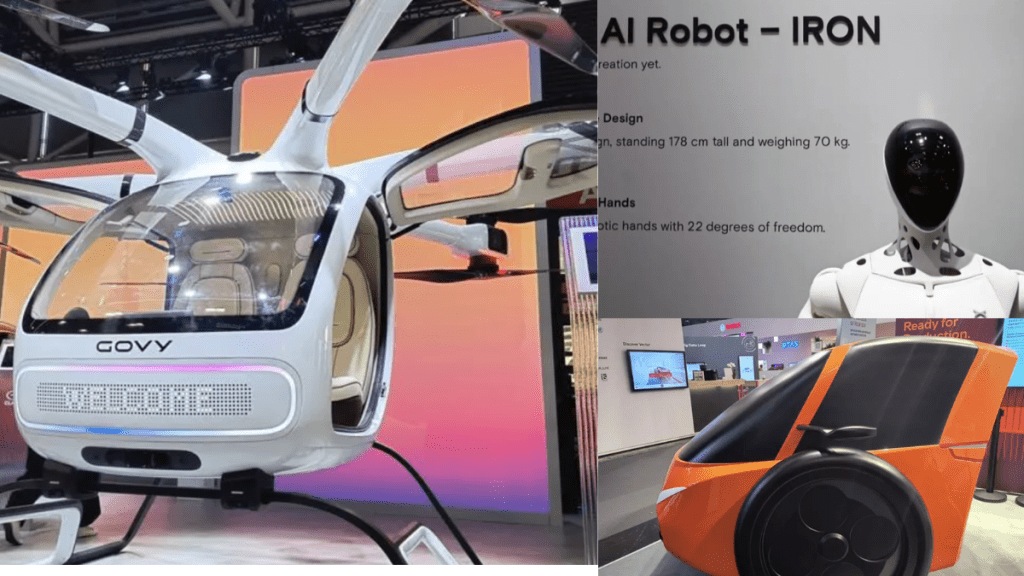Multiple Chinese brands, including carmaker Xpeng, stole the show at this year’s IAA mobility fair in Munich. The brand’s innovations, which ranged from robot dogs to small flying cars, made headlines across the world.
The Munich auto fair, officially known as IAA Mobility 2025, started on September 9 and is expected to run until September 14, 2025. The event serves as a hub for showcasing innovations in mobility, with a significant focus on electric vehicles, automated driving, and sustainable transport concepts.
From flying cars to self-driving buses, here are some of the innovations that became the centre of attraction at the Munich auto fair, IAA Mobility, one of the world’s biggest auto fairs that focuses on innovation in electric vehicles.
Car with wings
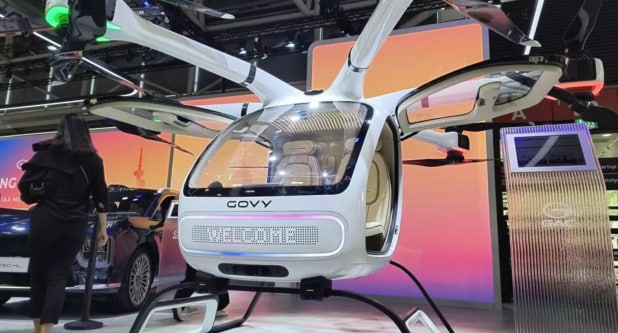
Multiple Chinese brands, ranging from Xpeng to GAC, showcased their ingenious models for flying cars.
The one in frame, Xpeng’s Land Aircraft Carrier, an electric car that contains a fold-out, two-seat electric aircraft, should go into mass production in 2026 and be on sale in China for less than 2 million yuan ($281,000).
“We want to give the car wings,” said Wang Tan, co-founder of carmaker Xpeng’s aeronautical unit. “Potential use cases for these models can include rescue missions from locations which are difficult to access, such as in heavy traffic or from tall buildings,” Wang added.
Meanwhile, GAC’s flying car unit Govy showed off its AirCab, a two-seater self-driving electric aircraft with a top speed of 120 km/h and a range of up to 30 kilometres.
“It is quieter than a helicopter and better meets people’s needs,” Govy spokeswoman Li Shuhan said. “It’s also cheaper,” he added.
Robot dogs
Chinese battery company Eve Energy’s product captivated the interest of many attendees at the fair. Covered in yellow fur, and with big googly eyes and a red felt tongue, the Go2 robotic dog looks cute and cuddly is more than just a gimmick.
The robotic dog is said to have applications in rescue operations amid disasters.
“For dangerous work you need robots”, said Todd Zhang from Eve Energy, the Chinese company that makes batteries for the Go2, which is built by another Chinese outfit, Unitree Robotics.
Self-driving buses
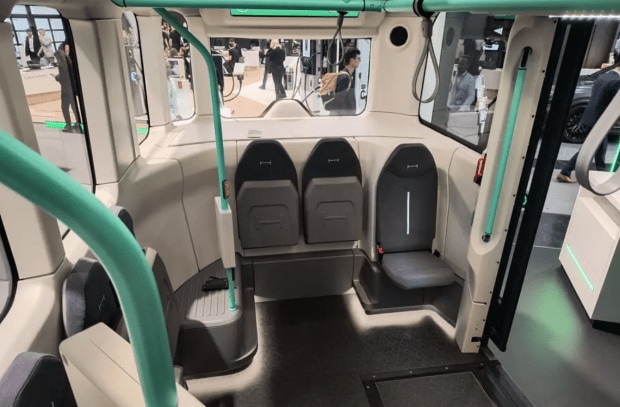
A broad range of companies, including Germany’s Holon and Estonia’s Auve Tech, displayed small self-driving buses, designed for routes where larger buses with drivers could be too expensive.
Auve Tech has 25 vehicles on the road, 20 of which are in Japan, co-founder Johannes Mossov told AFP, helped by a “strong push” from the government there.
Robot people
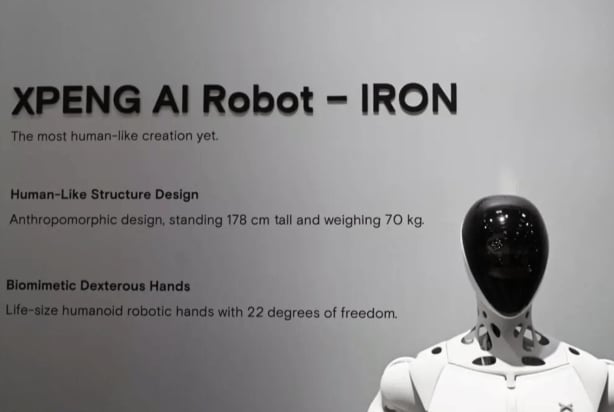
Chinese electric-vehicle maker Xpeng was showcasing its humanoid robot, called Iron, at the fair.
Over 30 Irons are currently in training, mostly on the carmaker’s production line, although some also help out with showroom sales.
“We hope we can let robots work on the production line by the end of this year,” Shi Xiaoxin, Xpeng’s head of robotics, told AFP.
Iron is trained using motion sensors worn by employees, which gather data on human movement.
Wolf on wheels
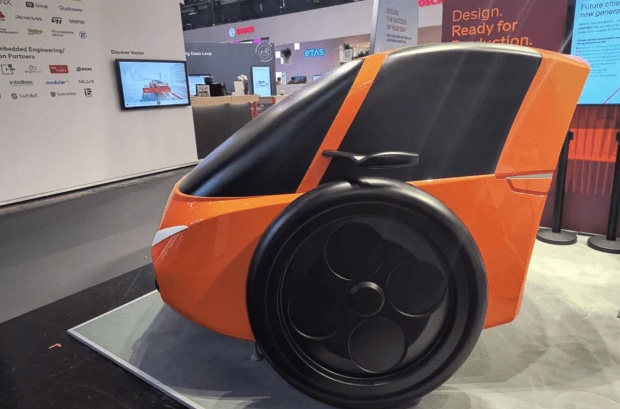
The sole Austrian entry on this list, Wolfgang Podleiszek, on Saturday unveiled a funky two-wheeled electric car that steers like a Segway and needs the driver to lean into corners.
“We’ve tried to send a signal to Europe that we can once again dream and do something new and innovative,” he said.
(With Input from AFP)

